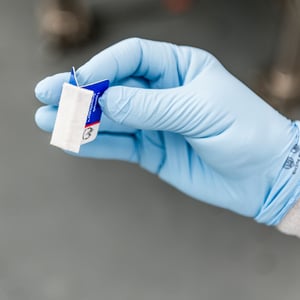Topical drug delivery systems provide excellent treatment options for a myriad of needs, pains, and ailments. Below, we’ve answered some of the most common questions about topical medications. If you have any questions that aren’t answered here, please let us know. We can connect you with an expert and get you the answers you need.
What are topical medications?
Topical medications are medications applied onto the body to treat various ailments. Most commonly, a topical drug delivery system is applied to the skin, where the medicine either treats only the area of application or is absorbed into the bloodstream through the dermis.
What forms do topical medications come in?
Topical medications come in many forms:
- Pastes
- Ointments
- Oils
- Creams
- Gels
- Tinctures
- Powders
- Sprays
- Patches
What do topical medications treat?
Topical drugs are primarily used to treat pain, swelling, and infection. While the available topical drugs on the market are growing, this segment of medication is typically used to non-invasively treat minor conditions.
Although people may instantly think of topical medications being applied to the surface of the skin, some other common treatment areas are the eyes, ears, and nose.
How is topical administration different from oral administration?
There are many differences between topical drug administration and oral administration. The primary difference is topically formulated drugs are applied to the external parts of the body as opposed to ingestion by mouth.
Are all topical drugs considered prescription?
Not all. Some topical drugs require a prescription, but many are available over-the-counter at your local pharmacy.
Can topical administration of a drug help to reduce side effects?
Yes, because a topical drug provides treatment in one of two ways. It either treats the locally affected area only, or it permeates the skin to enter the bloodstream. Either way, the drug avoids the GI tract, preventing common side effects associated with orally administered drugs like esophageal reflux or stomach irritation. Many common side effects can be avoided by topical administration.
What medications work better when applied topically?
Lots of them. Some topical medications offer fewer side effects than oral medications. Some topical medications are also excellent at treating a specific site on the body, instead of being absorbed into the bloodstream. Some topical medications are easier to administer, replacing painful or anxiety-inducing administration of drugs via needle.
What are the benefits of topical drug delivery?
Tropical drug delivery has many benefits. It provides:
- A safe alternative to oral drug administration
- Fewer risks of gastrointestinal difficulties
- Fewer risks of abuse
- Easy administration
- Reduced hospital congestion
To learn more about each of these benefits, we cover them in-depth in this article.
How do you safely administer topical medication?
 Depending on the medication being administered, safe application may look different. Clean the area to be treated prior to application. To avoid getting the medication on your hands, it can be helpful to wear gloves. Another option is administering medication using a unit-dose package, which comes pre-packed with a single dose.
Depending on the medication being administered, safe application may look different. Clean the area to be treated prior to application. To avoid getting the medication on your hands, it can be helpful to wear gloves. Another option is administering medication using a unit-dose package, which comes pre-packed with a single dose.
At Tapemark, we’ve developed a unique and patented design for semi-solid drug delivery. The Snapplicator™ allows users to apply their topical medication directly to the skin without coming into contact with it.
You can learn more about the Snapplicator™ in this video:
What’s the difference between topical vs. transdermal?
Transdermal patches are applied topically, and therefore are considered under the umbrella of topical medication. These patches adhere to the skin with an adhesive base, and they typically contain a time-release mechanism, allowing the skin to absorb a consistent, constant amount of medication throughout the course of hours or even days.
Have more questions about topical medications? Talk to an expert to get the answers.
